"The supermarket near my house is selling basil, lemongrass, and Vietnamese coriander for seasoning sour soup. If anyone needs some, let me know so I can buy them all at once." This message from a friend in the Vietnamese women's group in the Savoie region of France, where I live, was met with enthusiastic responses.
The prices aren't cheap, but everyone asks me to buy one or two types, because if you don't live in a big city, it's difficult to find these vegetables to cook authentic Vietnamese dishes.
Amateur farmer
Spring is the planting season for families in temperate climates. Unlike Westerners who usually plant lettuce, potatoes, carrots, and tomatoes, Vietnamese people plant gourds, pumpkins, bitter melon, chayote, water spinach, and, of course, aromatic herbs such as coriander, sawtooth coriander, perilla, mint, basil, and lemongrass...
Visiting Thien Y's house in Bauges, France, in the early summer, I was amazed by her lush garden filled with various Vietnamese fruits and vegetables. Thien Y grows everything from bitter melon, loofah, and chayote to various herbs.
Having lived in the city, Thien Y only truly got into gardening after moving to France. "At first, I knew nothing, then I learned from various groups and associations. Everyone guided me very attentively, and now I'm quite knowledgeable about 'farming'," Y shared humorously.
My former colleague Phuong Hien surprised me even more when she showed off photos of her bountiful gourd vines at her house in the Netherlands. Back in Vietnam, Hien claimed to be a Fire element person, incapable of growing anything. Yet now she has a nearly 20 square meter garden full of gourds, pumpkins, and various herbs thriving.
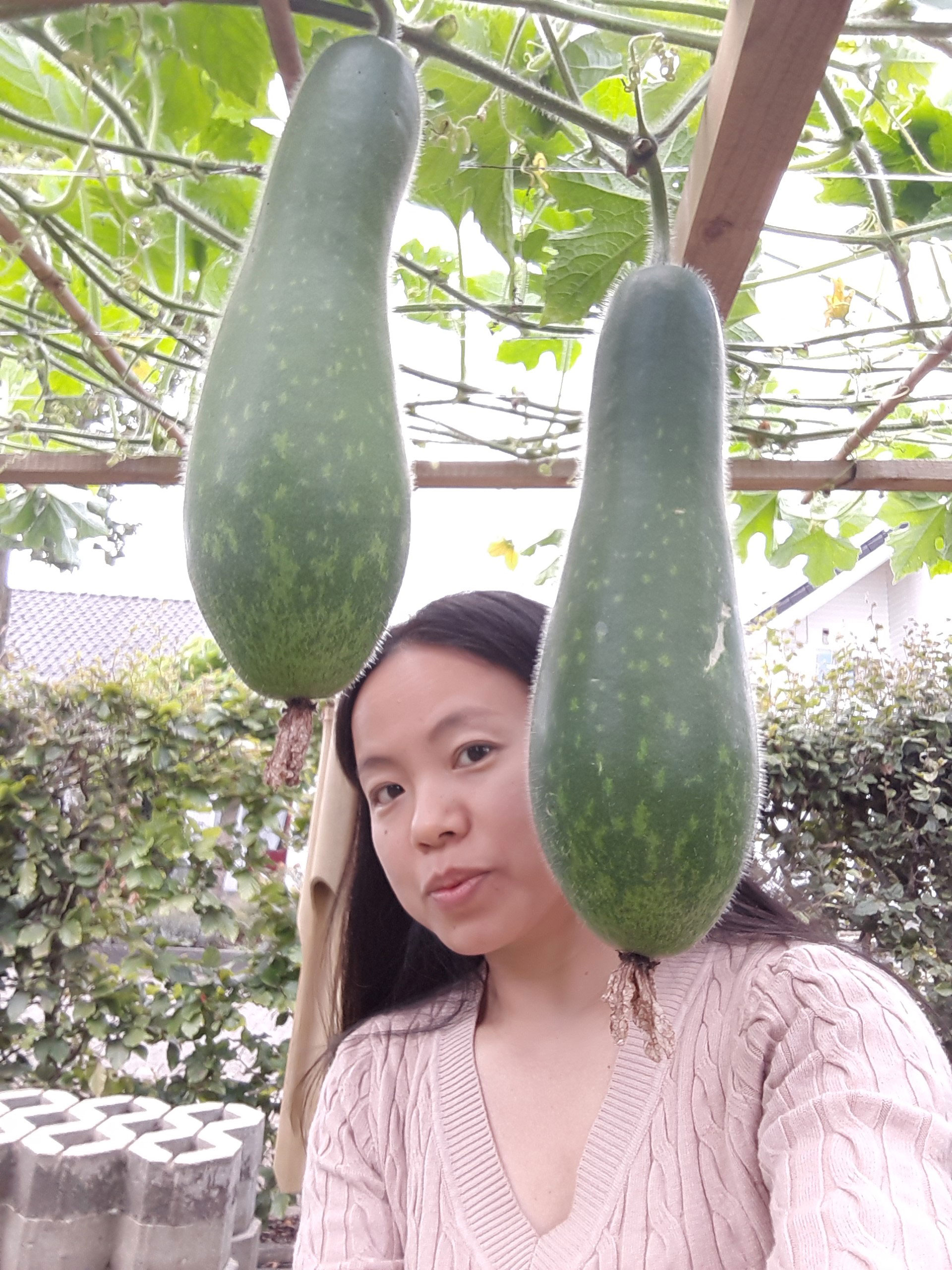
Ms. Phuong Hien and her trellis laden with winter squash.
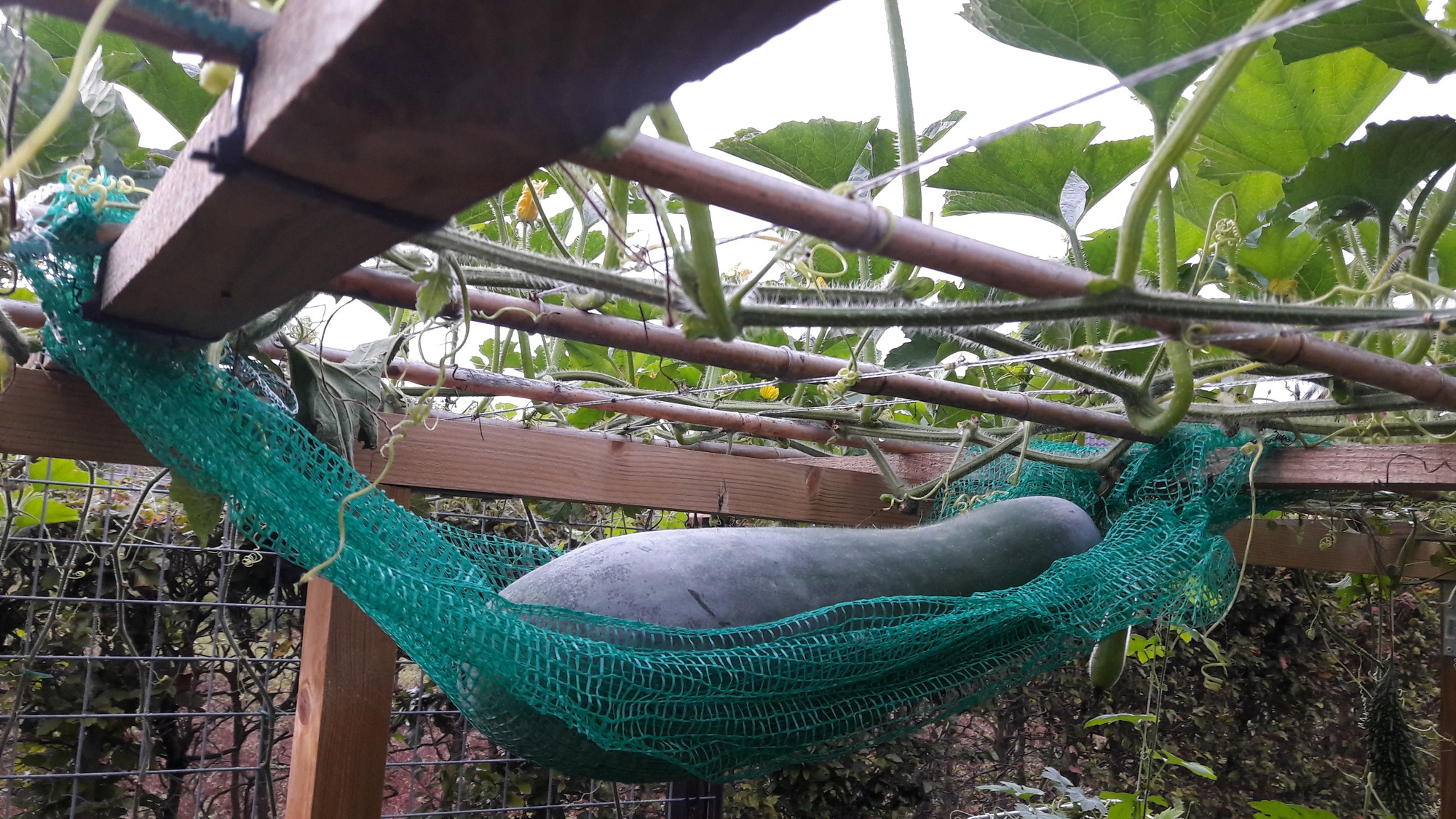
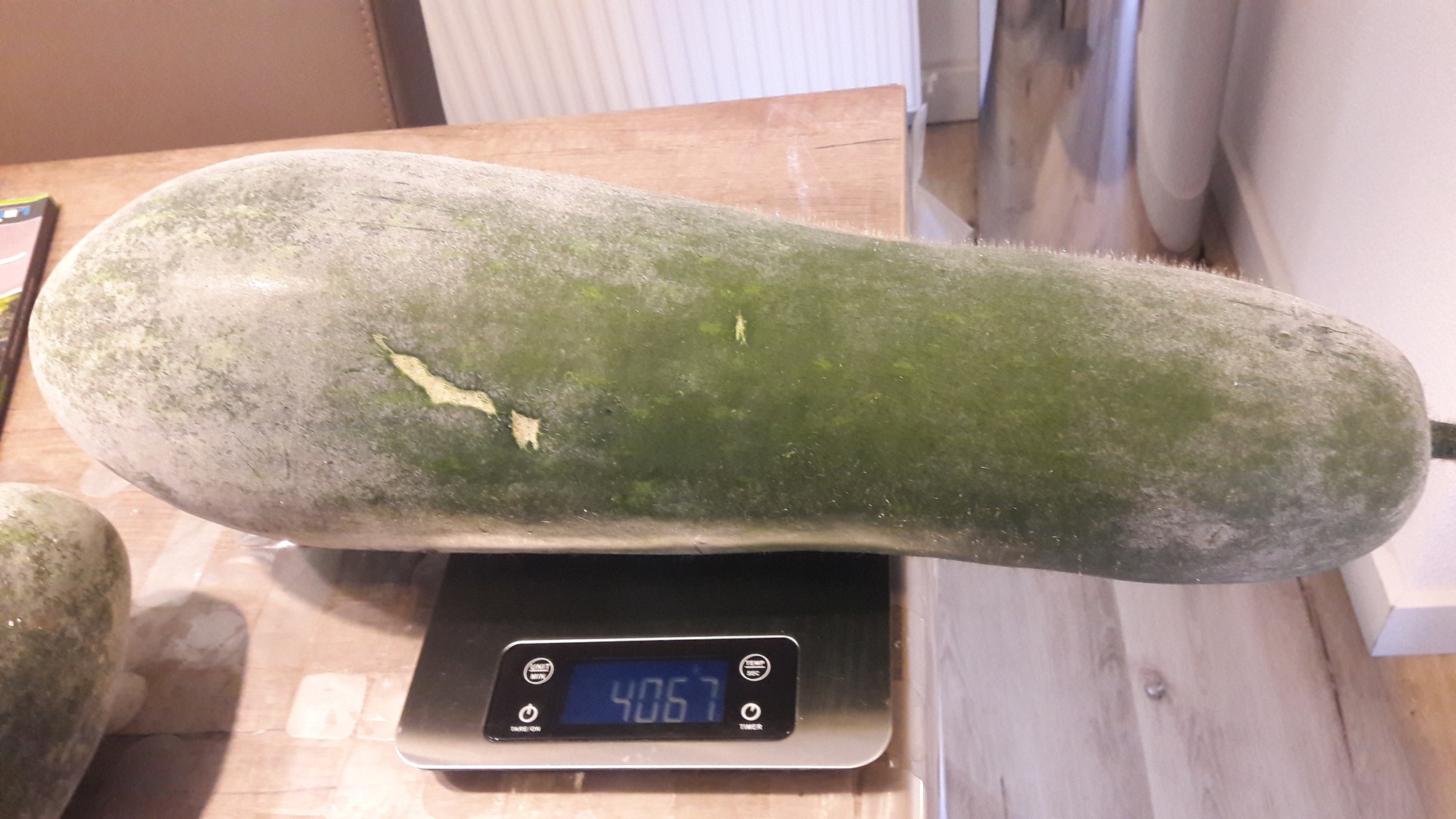
Giant winter squash in Ms. Phuong Hien's garden.
Having only ventured into farming after "leaving home to marry" and becoming a daughter-in-law in a foreign land, Hien confided: "I grow to ease my homesickness and longing for my hometown, but I can't eat it all. When I'm planting, I want to grow any kind of vegetable, and when the vegetables and fruits are in season in the middle of summer, I have to beg relatives and acquaintances nearby to come and take some home to eat."
These days, I see pictures of gardening shared on social media almost every day. Only when you live far from home do you truly appreciate how precious those seemingly ordinary vegetables are. Fish stew needs Vietnamese coriander and dill; eating bun cha (grilled pork with vermicelli) without perilla and mint would be... utterly disappointing.
These vegetables are almost impossible to find in Western supermarkets; if they do, it's usually just a few sprigs of cilantro or dill in pretty little boxes at very Western prices. Water spinach and chayote occasionally appear in some vegetable supermarkets, but at exorbitant prices.
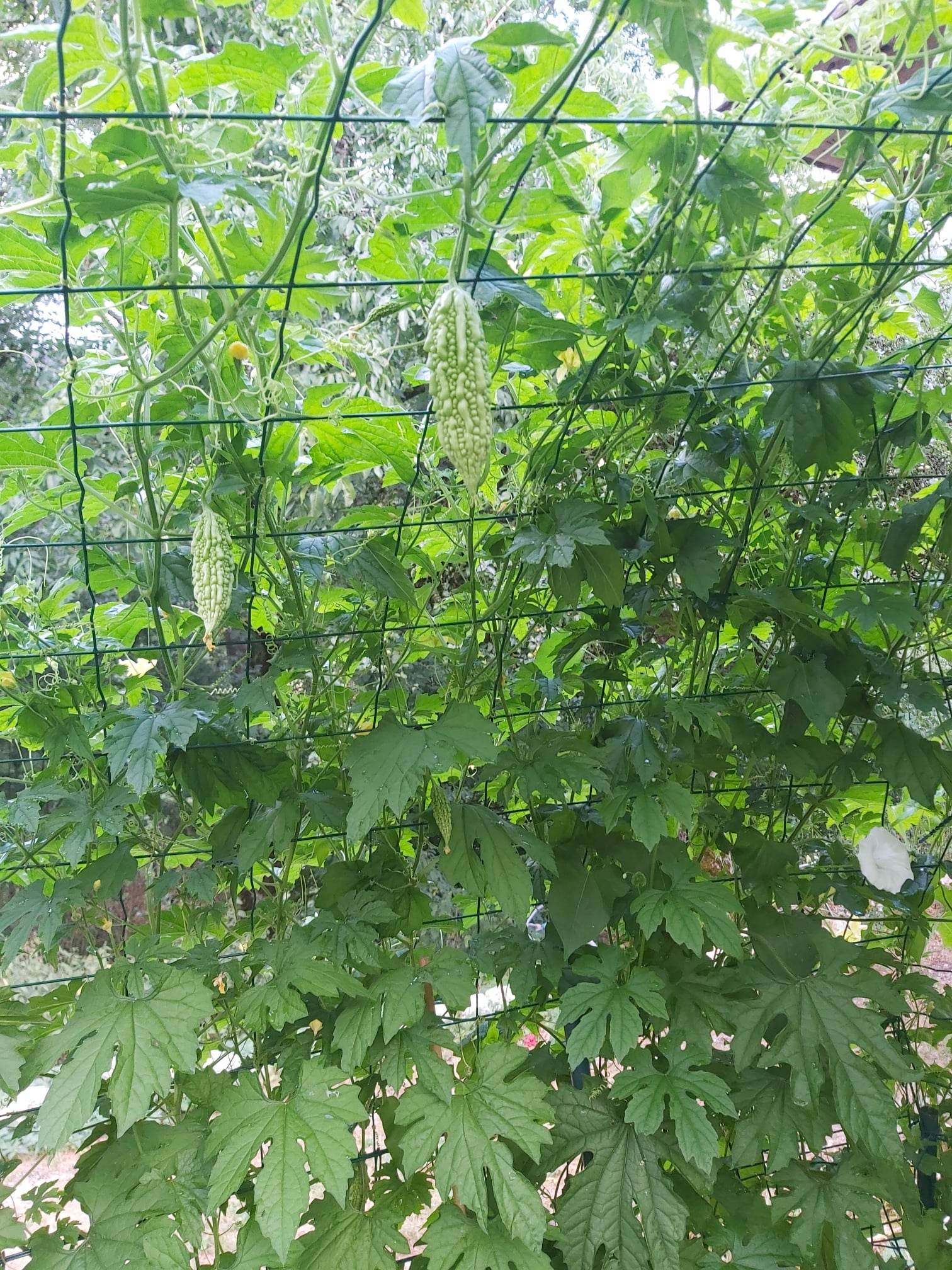
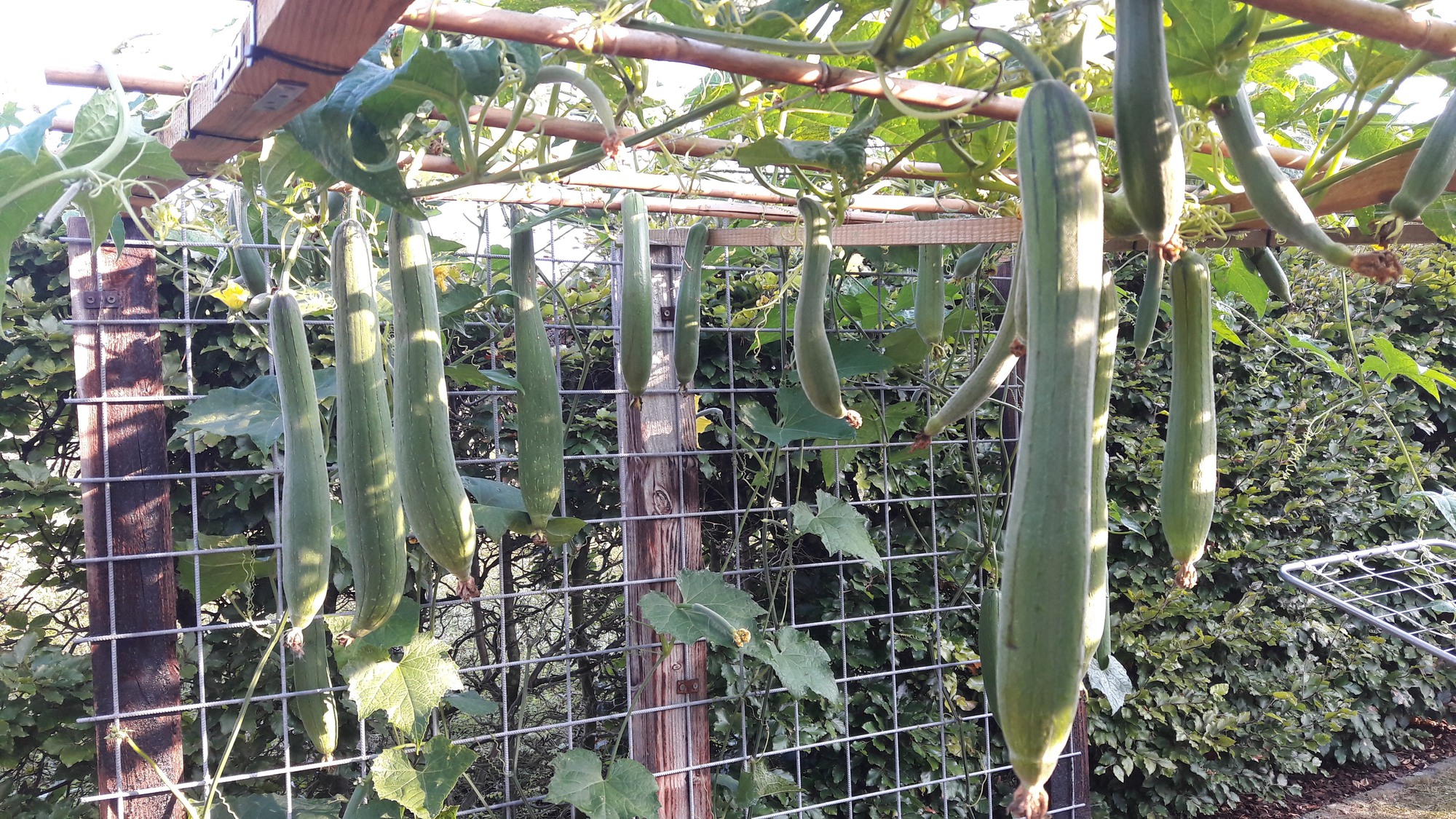
...and Ms. Phuong Hien's "much-loved" loofah gourd.
A hundred things to worry about.
Who wouldn't love a lush, green garden? But achieving such results requires countless days of learning, research, and even considerable effort. Most Vietnamese people living in the West start gardening with very basic knowledge, and face significant challenges due to the different climate and soil conditions compared to their homeland.
"Summer in Europe is very short, so if you plant at the wrong time, it's a total loss, and you have to wait for the next season," Thien Y explained. Not to mention that in some years the weather is unpredictable, and it's still cold in mid-May, preventing the plants from growing properly.
Ms. Thoa Hoang from Haute Savoie, France, said: "There are only a few warm months a year. If the warm weather comes late, the trees don't have time to grow before the weather turns cold again, and all the effort is wasted."
To prepare for the changing weather, in April, when the cold weather subsides, any sunny spot in the house is used for sowing seeds and growing seedlings. On warm, sunny days, they are taken outside; on cold, rainy days and at night, they are brought inside, and so on until the seedlings are ready to be planted in the garden.
After planting, the next challenge is battling insects. Just imagine waking up in the morning and crying when you find your young plants completely gone overnight. Snails are the real enemies, devouring every sprout in their path, and then aphids attack the young buds, preventing the plants from flowering and bearing fruit, causing them to gradually die.
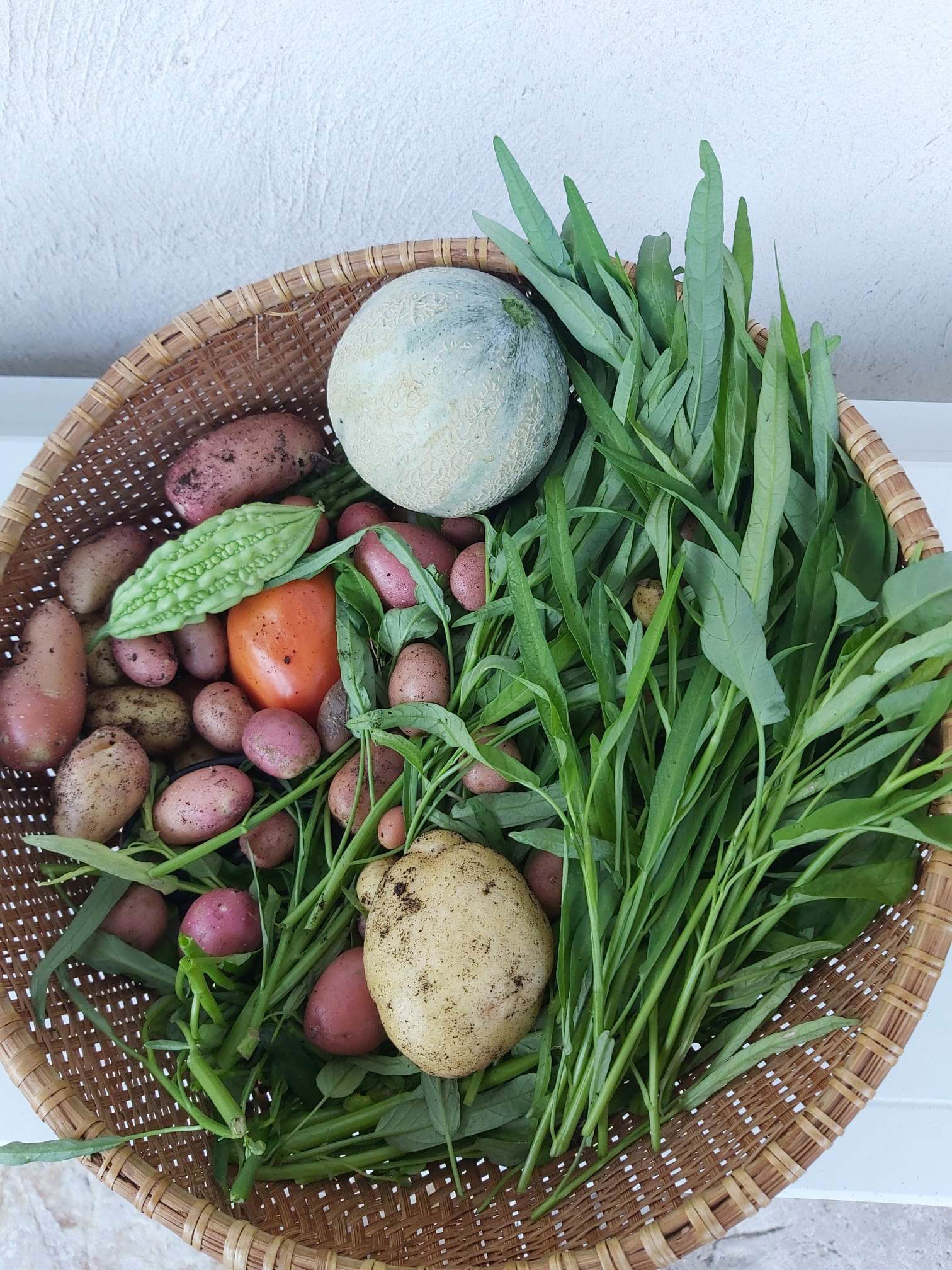
A basket of fresh vegetables from Thien Y's hometown (Photo provided by the subject)
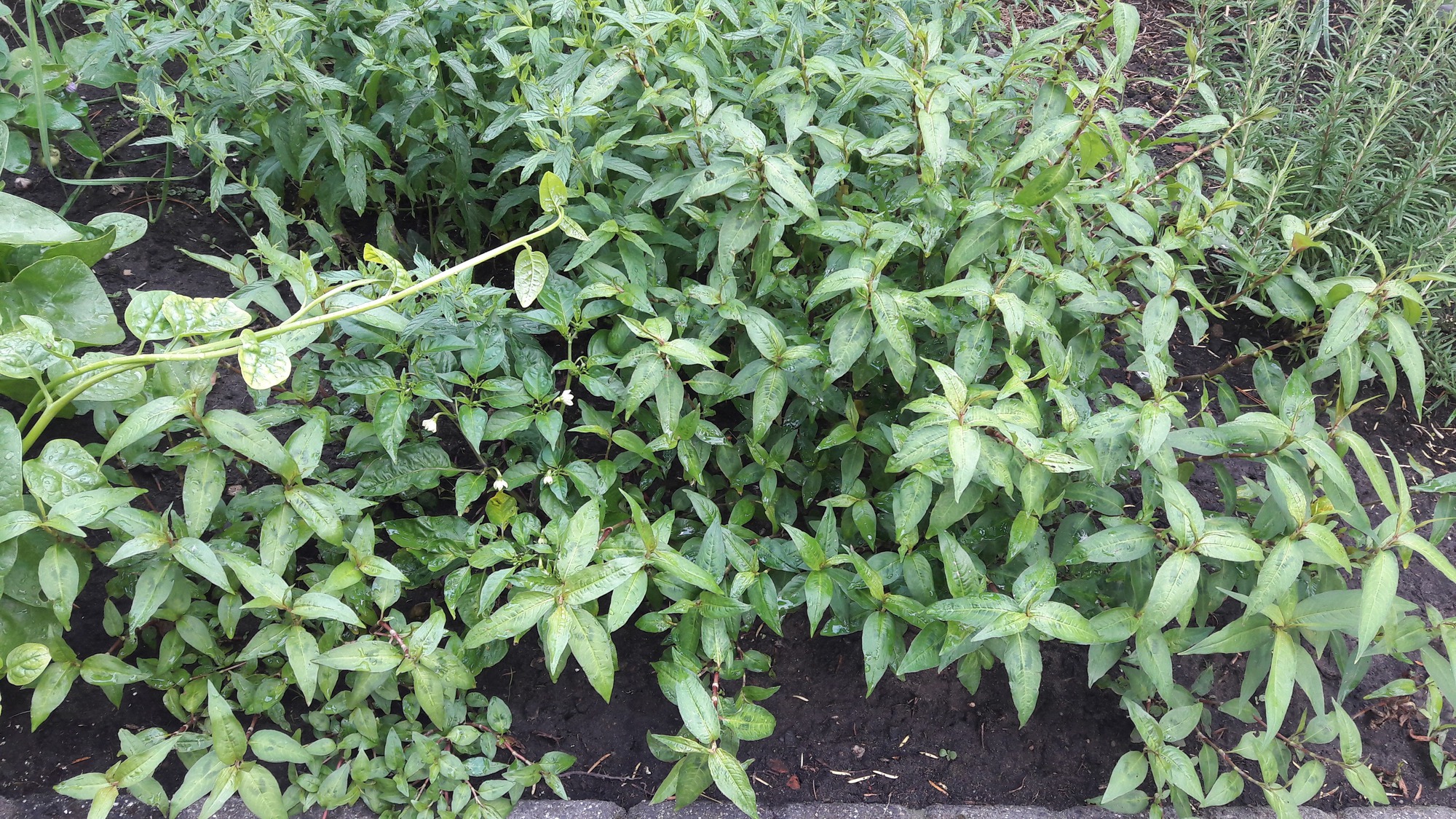
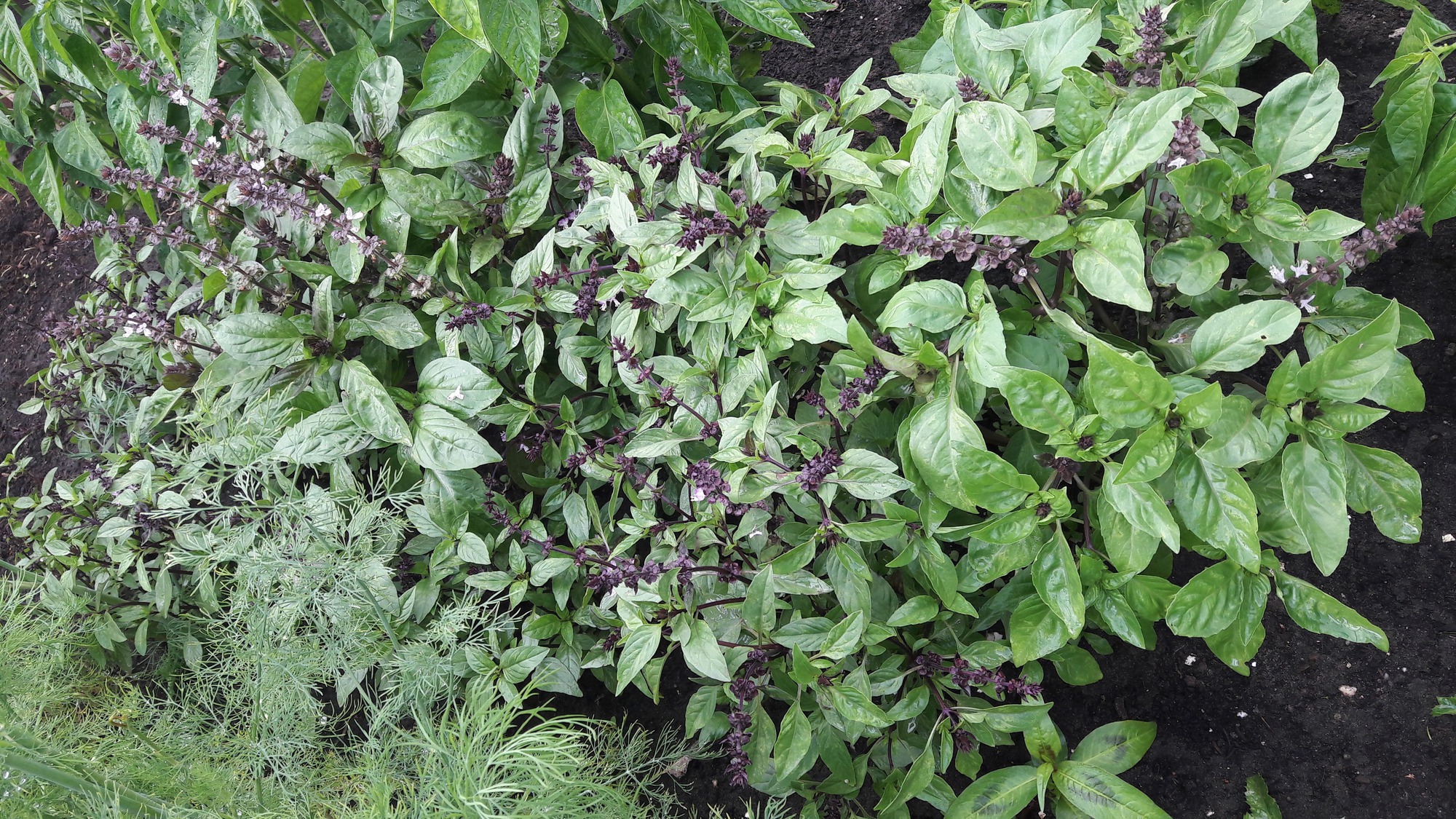
Authentic Vietnamese herbs
Gardeners are constantly struggling to find ways to eliminate harmful insects without affecting the quality of their produce. Although various biological pesticides are available on the market, they are quite expensive and their effectiveness is only modest.
Thus, the topic of pest control is always a hot topic on forums, with many environmentally friendly initiatives. Garlic, chili peppers, strong alcohol, vinegar... all are being used.
As for snails, every night, especially after the rain, the women would painstakingly catch them all and throw them far away so they couldn't find their way back before they could rest easy. Phuong Hien even built an elaborate "fortress" to prevent snails from approaching the vegetable beds: an outer ring of snail-repellent plants, followed by stiff-bristle brushes, and an innermost ring covered with eggshells on the ground – all aimed at preventing snails from crawling through.
There's also a heartbreakingly funny story that people buying plants or seeds on online forums often encounter: After all the hard work of growing them, they find out when the plants have grown that they aren't the kind of vegetables or fruits they wanted.
The reason is that neither the seller nor the buyer has the experience to identify the plants, while the seedlings are sourced from various places with descriptions in every language imaginable, even Google Translate can't translate them.
All the hard work has paid off.
When the weather is good, the Vietnamese vegetable garden in Europe thrives beyond expectations. Phuong Hien proudly shows off her winter squash, which weighs over 4 kg, and chili peppers that produce so much fruit that she can't eat them all, so she pickles them in vinegar to eat gradually. Vegetables that can't be frozen are given to neighbors and friends.
Although not very familiar with Vietnamese gourds, pumpkins, loofahs, and bitter melons, Phuong Hien's husband's family particularly loves aromatic herbs. "They add the white mint leaves, usually used in hot pot or sour soup, to their cold drinks, saying the scent is pleasant. And the chilled lemon and lemongrass drink I make is amazing!" - Hien excitedly boasts about her achievement.
For Thien Y, the joy comes from seeing the whole family excited about the delicious, clean fruits and vegetables readily available in the garden and the flavorful, hearty Vietnamese meals that enrich the menu alongside Western dishes.
Source








![[Photo] People in flood-affected areas of Dak Lak joyfully celebrate Tet in their new homes.](https://vphoto.vietnam.vn/thumb/1200x675/vietnam/resource/IMAGE/2026/02/16/1771228795887_ndo_bl_img-2313-2861-jpg.webp)
































































































Comment (0)